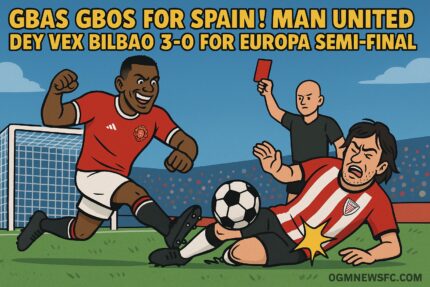The Euro 2024 clash between Spain and Germany began with high intensity, showcasing both teams’ determination to dominate early on. From the first minute, Spain’s Pedri tested Germany’s defense with a left-footed shot from outside the box, forcing a save from the German goalkeeper. This early attempt set the tone for a fiercely competitive first half.
Spain’s strategy was clear: maintain possession and create opportunities through quick passes and strategic positioning. Álvaro Morata and Dani Olmo were pivotal, with Olmo replacing an injured Pedri early in the match. Germany, on the other hand, relied on their experienced midfielders like Toni Kroos and Ilkay Gündogan to control the pace and break up Spain’s rhythm. Fouls and free kicks were frequent, highlighting the physical nature of the game and the tactical fouls used to disrupt play.
Mid-Half Momentum Shifts: Defensive Stalwarts and Missed Opportunities
As the match progressed, both teams had their share of missed opportunities and defensive highlights. Spain’s Fabián Ruiz and Lamine Yamal consistently threatened Germany’s goal with long-range shots, but accuracy was lacking. Germany responded with their own offensive attempts, notably from Kai Havertz, whose header from the center of the box was saved by the Spanish goalkeeper.
Defensively, both teams showcased resilience. Spain’s Aymeric Laporte and Germany’s Antonio Rüdiger were crucial in their respective backlines, thwarting numerous attacks. The match saw a series of free kicks and yellow cards, with Germany’s Rüdiger and Spain’s Robin Le Normand booked for bad fouls. These interruptions not only slowed the game’s pace but also reflected the tactical nous of both teams in preventing the opposition from gaining an upper hand.
End of First Half: Equilibrium Maintained Amidst Rising Tensions
As the first half drew to a close, the score remained goalless, but the intensity never waned. Both teams continued to push for a breakthrough, with Spain’s Lamine Yamal and Dani Olmo coming close with powerful shots from outside the box. Germany’s defense, however, stood firm, and their goalkeeper remained vigilant, making crucial saves to keep the scoreline intact.
The final minutes of the half were marked by tactical fouls and strategic play, with both sides winning free kicks but failing to capitalize. The goalless draw at halftime was a testament to the evenly matched nature of the contest, with neither team able to convert their chances into goals. As the players headed into the locker rooms, the anticipation for the second half grew, with fans eagerly awaiting more thrilling football in this Euro 2024 showdown.
Tactical Battles and Key Moments
The second half of the Spain vs Germany match saw both teams intensify their efforts to break the deadlock. Spain’s Dani Olmo finally opened the scoring in the 51st minute with a precise shot into the bottom left corner, capitalizing on a well-worked assist from Lamine Yamal. This goal not only gave Spain a crucial lead but also highlighted their ability to convert chances under pressure.
Germany, quick to respond, pressed forward aggressively, resulting in Robert Andrich earning a yellow card for a reckless foul. Despite several attempts from Jamal Musiala and Niclas Füllkrug, Germany struggled to find the equalizer until Florian Wirtz’s clinical finish in the 89th minute. Joshua Kimmich’s headed pass set up Wirtz perfectly, demonstrating Germany’s persistence and ability to strike late in the game.
Defensive Resilience and Set-Piece Threats
Throughout the match, both teams showcased solid defensive strategies, with Spain’s Aymeric Laporte and Germany’s Jonathan Tah playing pivotal roles in thwarting attacking moves. Set-pieces emerged as crucial opportunities, with Germany earning multiple corners that tested Spain’s defense. Spain’s Marc Cucurella was notably busy, conceding several corners but also contributing defensively to keep the score level.
Spain’s goalkeeper, Unai Simón, made critical saves to deny Germany’s attempts from outside the box, highlighting his alertness and positioning. Conversely, Germany’s defensive lineup, marshaled by Antonio Rüdiger, managed to restrict Spain’s forward line, forcing them into wider angles for their shots.
Strategic Substitutions and Impact Players
Both managers utilized substitutions strategically to influence the game. Spain introduced Ferran Torres and Mikel Oyarzabal in the 63rd minute, injecting pace and creativity into their attacking play. Torres, in particular, posed a constant threat down the wings, creating opportunities that kept Germany’s defense on edge.
Germany responded by bringing on Waldemar Anton for Kai Havertz in extra time, aiming to reinforce their defense while maintaining pressure on Spain. The substitutions not only refreshed the teams physically but also tactically adjusted their gameplay, setting the stage for a fiercely contested extra time period.
Drama in Extra Time and Final Outcome with a goal by Mikel Merino
The first half of extra time remained tightly contested, with both teams pushing for a decisive goal. Spain’s Mikel Merino capitalized on a well-delivered cross from Dani Olmo in the 119th minute, heading the ball past Germany’s defense to secure Spain’s lead. This goal proved decisive as Spain held on defensively to clinch victory despite Germany’s late efforts.
The match concluded with Spain celebrating a hard-fought win, highlighting their resilience and ability to capitalize on crucial moments. Germany, while valiant in their efforts, fell short despite Florian Wirtz’s late equalizer, reflecting on missed opportunities and Spain’s clinical finishing.
Overall, the Spain vs Germany clash showcased intense competition, tactical astuteness, and moments of individual brilliance, making it a memorable encounter in Euro 2024.
This detailed analysis provides a comprehensive overview of the Spain vs Germany match, capturing key moments, tactical insights, and the drama that unfolded throughout the game.














